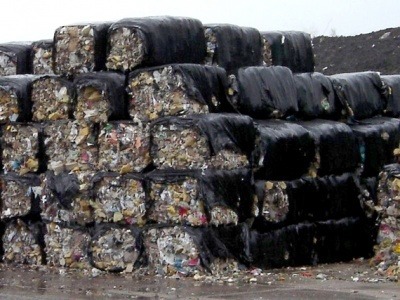UK and EU must act to ensure continued trade of RDF, says industry group
The refuse derived fuel (RDF) Industry Group has called for urgent action from the UK Government and the EU to ensure that the export of RDF from the UK to Europe will continue unhindered after Brexit.
The RDF Industry Group, whose members are drawn from across the RDF supply chain, details the arguments for RDF export to continue in its new publication, ‘Waste Export: Brexit Briefing Note’.
The briefing note makes the argument that as the UK moves towards a more circular economy, RDF exports represent an environmentally advantageous treatment route for waste, as well as providing a safety valve for the waste management industry in the event of insufficient domestic residual waste treatment capacity. This will allow the UK Government time to develop future waste policy and either increase residual waste treatment capacity or increase recycling rates. The publication echoes calls made by the Environmental Services Association (ESA), a trade organisation representing UK waste management companies, back in April for the frictionless trade of waste materials to remain post-Brexit.
The UK’s impending departure from the EU, and the prospect of a return of tariffs on exports and imports to and from the continent, has stoked fears in the waste sector that the export of additional residual waste as RDF to Europe would encounter significant price barriers, in terms of the additional costs met at the border on top of the gate fees already demanded by energy-from-waste (EfW) facilities in Europe.
Since 2010, the export of RDF for treatment in spare EfW capacity in Northern Europe has markedly increased, now standing at around 3.6 million tonnes a year. This accounts for the treatment of around 14 per cent of the UK’s residual waste, and is worth an estimated £500 million annually.
In its briefing note, the RDF Industry Group calls for the UK Government and the EU to:
- Maintain the current legislative framework that allows RDF to be exported;
- Ensure that any new customs process does not impede the export of RDF at the UK’s borders, and that there are sufficient staff and resources to implement new customs processes; and
- Ensure that a trade deal is reached with the EU (and the European Economic Area) which provides for a zero per cent tariff on RDF export.
Commenting on the briefing note, Robert Corijn, Marketing Manager at Attero B.V and Chair of the RDF Industry Group, said: “The environmental and economic arguments for RDF export are clear, both for the UK and its neighbours. The UK Government and EU must act without delay to provide clarity to the industry that exports can continue, without hindrance or additional cost, and ensure that any new customs process does not impede the export of RDF. “
The Group’s calls have also been supported by the Confederation of European Waste-to-Energy Plants (CEWEP). Dr. Ella Stengler, Managing Director of CEWEP, said: “CEWEP welcomes the RDF Industry Group’s call for RDF exports to continue unhindered, as stated in their post-Brexit briefing note. CEWEP hopes that, after Brexit, the UK will continue its commitment towards a circular economy, including recycling and reduction of landfilling and greenhouse gas emissions.
“Sending waste that would otherwise be placed in landfills from the UK to other European countries, where the waste is transformed into heat and/or electricity, has an overall positive environmental outcome and ensures that the value of residual waste as a resource is fully realised. Keeping waste out of landfill will also contribute to the commitment to the Paris Climate Agreement.”
Robbert Loos, Director of the Dutch Waste Management Association, added: “With highly efficient EfW facilities that produce both electricity and heat, the UK’s RDF displaces more carbon-intense energy generation methods and contributes to the decarbonisation of interconnected energy networks. This important trade must continue and we urge the UK and EU to ensure this vital service is not ignored as Brexit negotiations continue.
“If Brexit results in operational and/or legislative barriers to RDF export, it would mean more waste going to landfill in the UK each year. That would be to disregard the waste hierarchy, worsen the environmental impact, increase costs and put jobs at risk.”
The full briefing note, ‘Waste Export: Brexit Briefing Note’, can be downloaded from the RDF Industry Group website.







